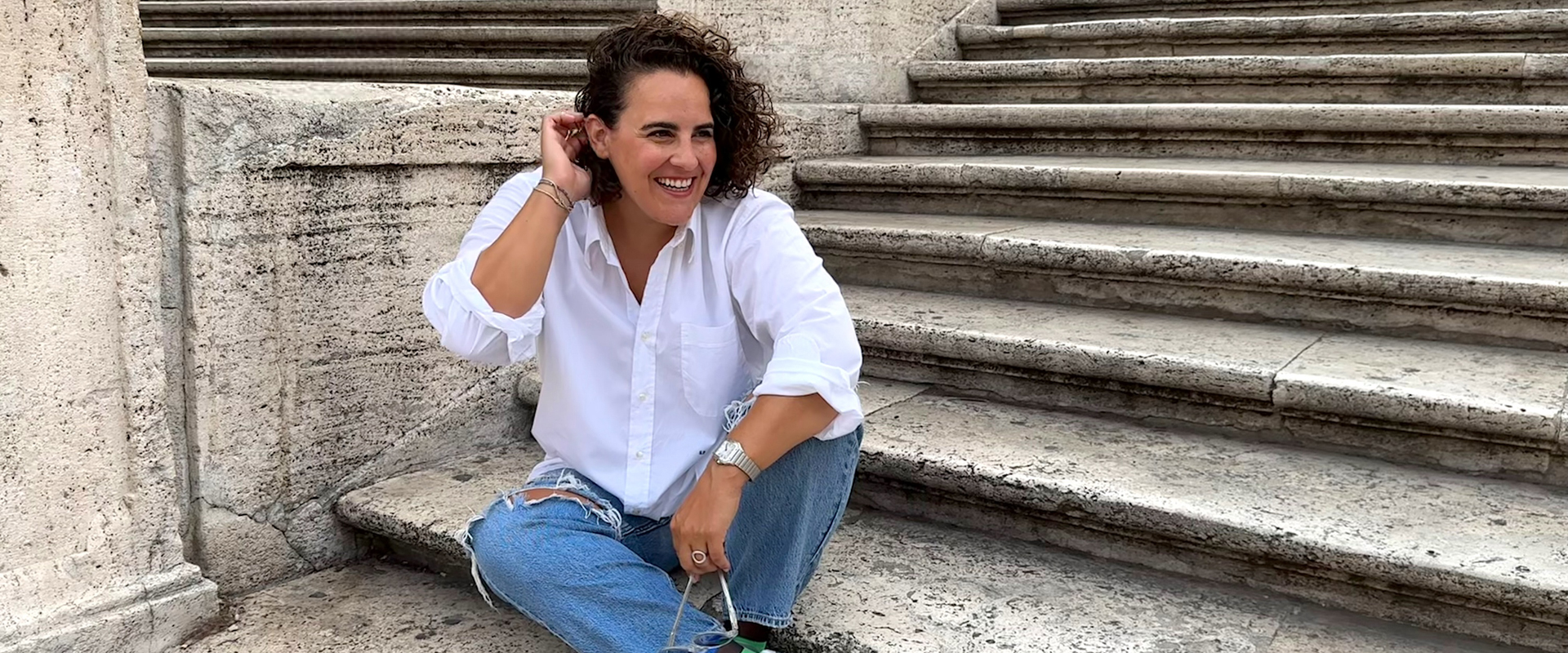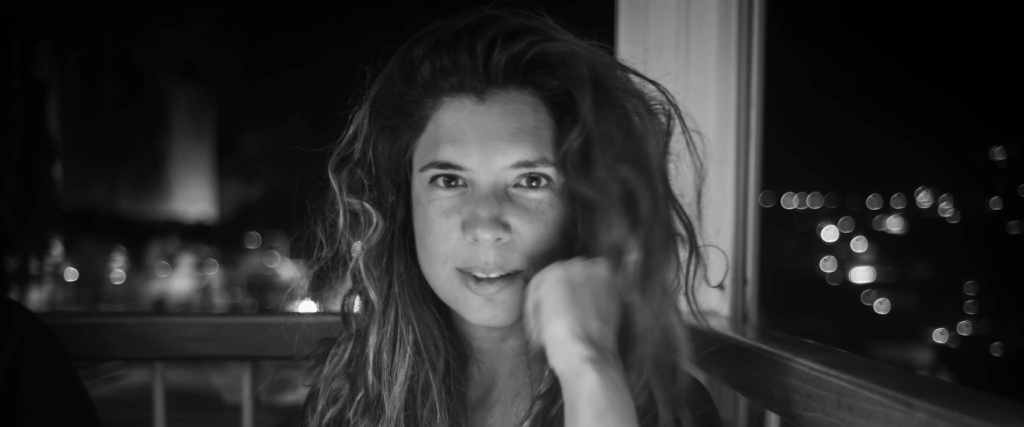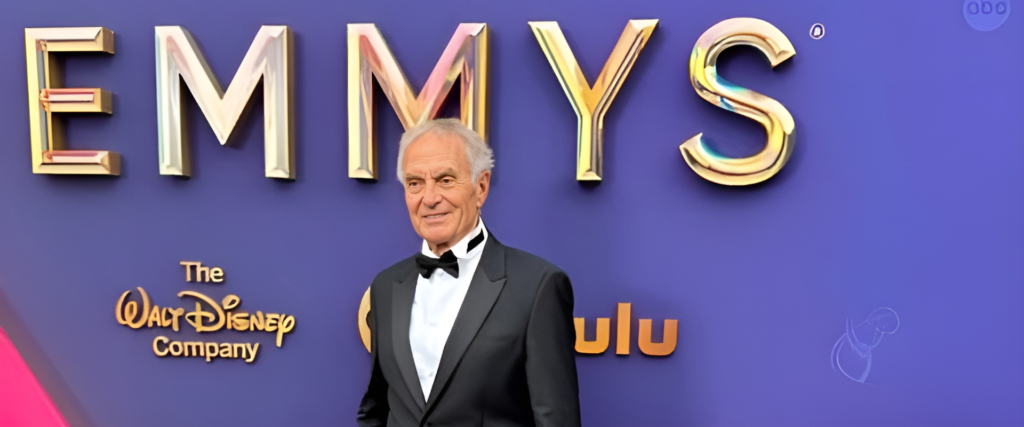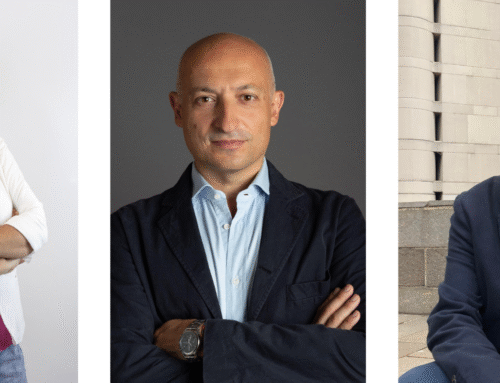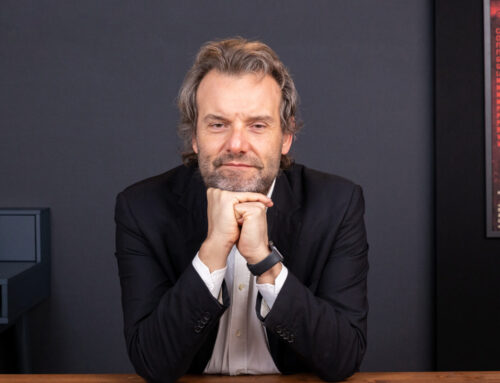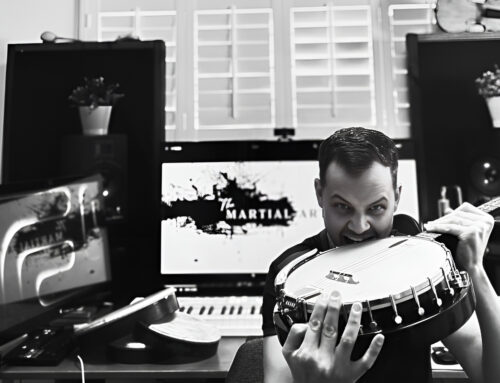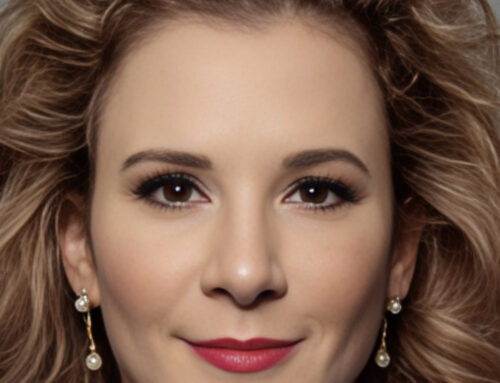Sara Furio: An American in Rome
The importance of embracing cultural humility in the entertainment industry to engage with global audiences
Don’t let her name fool you. Sara, born and raised in Chicago by her Italian immigrant parents, now calls Rome home. She spent nearly a decade building Netflix’s international efforts, from Hollywood to Bollywood and London to Rome. As a studio executive, she spearheaded the development and greenlighting of international original films that captivated diverse audiences, secured coveted spots on Netflix’s Most Popular Films (Non-English) list, and garnered Oscar nominations. Before her time at Netflix, Sara gained valuable experience at Warner Bros. and worked as a skilled video editor. Sara’s exceptional talent for nurturing compelling narratives that resonate across cultures and her skill in structuring financially successful partnerships have paved the way for her new venture into producing.
How has your experience working and living in various countries, including the United States, India, the Netherlands, England, and Italy, influenced your approach to creating content for a global audience? Are there significant differences in audience expectations or preferences across international markets?
Being immersed in and exposed to different cultures has undoubtedly influenced my approach to filmmaking and the way in which I conduct business – and the key to doing this successfully has been my deep curiosity about people and how they engage with content. I’ve found that embracing cultural humility broadens our perspective and transforms the creative process. And the reality is that diversity is all around us – we just have to be curious enough to seek it out. Cultural differences can certainly affect audience expectations—such as humor, pacing, or the portrayal of certain themes— though I’ve found that the underlying desires are often similar no matter where you are in the world. Audiences everywhere want content that connects with them emotionally, offers an escape from their everyday lives, and, most importantly, entertains them. My goal is to craft meaningful stories that transcend borders while honoring local nuances.
How audiences “engage” with content is becoming more talked about, thanks to streamers starting to share more data. How did the skills and insights you gained as a video editor early in your career prepare you for your roles as a film executive at Netflix and now as a producer?
Not many people know this about me, so it’s interesting you ask. I actually consider this one of my greatest strengths in filmmaking because it adds a unique layer of detail to my work. Even before I get to the editing room, my editing brain turns on… when I hear a pitch, I mentally cut a trailer to gauge the story’s marketability. When I read a script, I’m already editing the film in my head, focusing on emotion and rhythm. And when I watch dailies, I’m looking for the right coverage to bring the narrative together.
As an editor, my priority was always to impact the audience. This became even more critical at Netflix since most films I worked on didn’t premiere in theaters. With streaming services like Netflix, the way audiences interact with film has evolved. While getting someone to start a movie is relatively easy, keeping them engaged is much more challenging, especially with so many other options just a click away. This makes the role of the editor (and producer!) even more needed in crafting content that holds the viewer’s attention from start to finish. As a producer, I’m distribution agnostic, and my first concern will continue to be audience engagement.
Italy is known for creating more auteur-driven films rather than commercial ones. How do you think this trend aligns with global audience preferences? What motivates you to choose specific projects or genres as a studio executive and producer?
You’ve put me in the hot seat with this question. There will always be a place for films that offer artistic innovation, which auteur-driven projects often provide. However, it’s important to acknowledge that film is one of the most accessible art forms and needs to connect with viewers, not just fulfill a director’s vision. To protect the industry’s longevity, we must act like an industry—it’s essential to be fiscally responsible and think strategically about how films are made, marketed, and distributed. It’s key for sustaining the industry for future generations.
I often joke that I’d only be producing British dramas if I made films based solely on my taste. But as a studio executive and producer, my responsibility goes beyond my own preferences—it’s about understanding what audiences want and delivering on that. It’s crucial for industry professionals to priortize telling the stories that resonate with viewers rather than just catering to our own tastes. We need to step out of our bubbles, stay curious, and connect with those who think differently from us.
How do you see the entertainment industry evolving in the coming years, especially concerning the growing collaboration between markets like Italy and the United States? What skills or approaches are essential for industry professionals to navigate this evolving landscape successfully?
To start, I chose to stay in Rome rather than move back to LA or London because I believe the worldwide entertainment industry is becoming increasingly interconnected, and global production value is the highest it’s ever been. Collaborations between markets like Italy and the United States are creating exciting opportunities for more prosperous, more diverse storytelling. As a business person, I also see a greater potential for ROI on this side of the world.
As I’ve mentioned, cultural humility is key, not just in understanding other cultures but also in reflecting on your own. Transparent communication and strong collaboration skills are also very important as cross-border projects become more common. Those who can set aside egos, personal preferences, embrace the diverse tastes of global audiences, and effectively manage budgets will be at the forefront of this industry shift.
I would also like to ask how you feel about being younger than many of your colleagues in the Italian entertainment industry.
It’s a tricky question because my age has been both an advantage and a challenge in this context. My youth, and at times naivety, allowed me to approach situations with fresh perspectives and boldness. In an industry often stuck in the mindset of “we’ve always done it this way,” my age gave me the confidence to take risks and push boundaries, leading to impactful results.
However, being young, female, and American in a mature, male-dominated, and traditionally Italian environment was quite trying. At just 24, while at Warner Bros., I started working alongside Italian partners, and I had to quickly prove myself in a landscape where I didn’t fit the typical mold. Yet, these challenges became strengths, teaching me resilience and adaptability. They reinforced the importance of staying true to myself while bridging cultural and generational gaps.
I owe a great deal to my mentors from diverse backgrounds who have guided me throughout the years. It’s paramount for the industry to selflessly mentor and make space for new voices to foster innovation, inclusivity, and the industry’s long-term relevance.
Could you share the Italian Netflix Original films you were involved in and explain their significance to you or what motivated you to greenlight them?
Each project carried its own significance, often shaped by a personal connection or a moment of inspiration. I oversaw nearly 30 Italian films, so there isn’t enough time to list them all—it was a lot, maybe even too many. Here are a few stories that stand out…
Sulla mia pelle (On My Skin) was a script that moved me. Despite being told it was a small film, I refused to let it go because I believed in its potential. And wow, did it exceed expectations. At a party, Riccardo Scamarcio showed me a clip on his phone of him doing donuts in a Ferrari. This spontaneous moment led to Lo spietato (The Ruthless) and how non-English language films on Netflix could captivate audiences worldwide. One rainy day in Amsterdam, I watched a documentary called ‘Bagnini e Bagnanti‘ and wondered why Italy couldn’t make a summer blockbuster—so we made one, Sotto il Sole di Riccione (Under the Riccione Sun). My mentor, Guendalina Ponti, introduced me to her brother, mentioning that he had a story worth telling. That introduction led to the creation of the beautiful film La vita davanti a sé (The Life Ahead) loved around the world. Roberto Baggio was one of my childhood heroes—yes, I’m a tomboy at heart—and my love for sports films inspired Il Divin Codino (Baggio: The Divine Ponytail), and it turns out that Italy shares this passion with me. I read the script for Il filo invisibile (The Invisible Thread) while on a plane and laughed out loud—a rare reaction for me. More importantly, audiences gave it their thumbs up. I wasn’t entirely sold on Il mio nome è vendetta (My Name is Vendetta) at first, but I decided to take a chance and work hard on it. I’m glad I did, as it has reached audiences across the globe.
Given your unique experience working with a major traditional film studio like Warner Bros., followed by your time at Netflix during its rapid growth, what led you to choose to produce over returning to a studio role? And can you mention a project that you are currently working on?
When I left Netflix, I explored opportunities with other studios that would have looked impressive on my resume. However, the more I considered it, the more I realized that as a studio executive, your success is heavily dependent on the quality of your producers. During my time at Netflix, particularly when working to establish Italy’s original film strategy, I found myself pitching ideas directly to local producers, giving far too many notes on scripts and cuts out of a desire to see the initiative succeed. When I was in London, my managers even suggested that I step into a producer role, but I felt I hadn’t learned enough yet. While I’m still learning, I now believe I have a strong enough foundation to take on the challenge and pursue producing.
I prefer not to single out any specific project, but I will share that I’m laser-focused on development. A mentor once told me that Dino De Laurentiis used to say, “The star of the film is the script.” As an editor, studio executive, and producer, I find this to be absolutely true. The script is the foundation of any project—if it’s not strong, everything else falls apart.
Most of my work today involves developing English-language films set in Italy alongside a few Italian-language projects in the action and thriller genres and comedies aimed at female audiences. I wish I had seen more of these projects when I was a studio executive overseeing film for/from Italy, as I believe there is a strong demand for them among Italian audiences. I’m not trying to reinvent the wheel; it’s just that my guiding principle has been—and will continue to be—a fresh take on the familiar.
Share:
The importance of embracing cultural humility in the entertainment industry to engage with global audiences
Don’t let her name fool you. Sara, born and raised in Chicago by her Italian immigrant parents, now calls Rome home. She spent nearly a decade building Netflix’s international efforts, from Hollywood to Bollywood and London to Rome. As a studio executive, she spearheaded the development and greenlighting of international original films that captivated diverse audiences, secured coveted spots on Netflix’s Most Popular Films (Non-English) list, and garnered Oscar nominations. Before her time at Netflix, Sara gained valuable experience at Warner Bros. and worked as a skilled video editor. Sara’s exceptional talent for nurturing compelling narratives that resonate across cultures and her skill in structuring financially successful partnerships have paved the way for her new venture into producing.
How has your experience working and living in various countries, including the United States, India, the Netherlands, England, and Italy, influenced your approach to creating content for a global audience? Are there significant differences in audience expectations or preferences across international markets?
Being immersed in and exposed to different cultures has undoubtedly influenced my approach to filmmaking and the way in which I conduct business – and the key to doing this successfully has been my deep curiosity about people and how they engage with content. I’ve found that embracing cultural humility broadens our perspective and transforms the creative process. And the reality is that diversity is all around us – we just have to be curious enough to seek it out. Cultural differences can certainly affect audience expectations—such as humor, pacing, or the portrayal of certain themes— though I’ve found that the underlying desires are often similar no matter where you are in the world. Audiences everywhere want content that connects with them emotionally, offers an escape from their everyday lives, and, most importantly, entertains them. My goal is to craft meaningful stories that transcend borders while honoring local nuances.
How audiences “engage” with content is becoming more talked about, thanks to streamers starting to share more data. How did the skills and insights you gained as a video editor early in your career prepare you for your roles as a film executive at Netflix and now as a producer?
Not many people know this about me, so it’s interesting you ask. I actually consider this one of my greatest strengths in filmmaking because it adds a unique layer of detail to my work. Even before I get to the editing room, my editing brain turns on… when I hear a pitch, I mentally cut a trailer to gauge the story’s marketability. When I read a script, I’m already editing the film in my head, focusing on emotion and rhythm. And when I watch dailies, I’m looking for the right coverage to bring the narrative together.
As an editor, my priority was always to impact the audience. This became even more critical at Netflix since most films I worked on didn’t premiere in theaters. With streaming services like Netflix, the way audiences interact with film has evolved. While getting someone to start a movie is relatively easy, keeping them engaged is much more challenging, especially with so many other options just a click away. This makes the role of the editor (and producer!) even more needed in crafting content that holds the viewer’s attention from start to finish. As a producer, I’m distribution agnostic, and my first concern will continue to be audience engagement.
Italy is known for creating more auteur-driven films rather than commercial ones. How do you think this trend aligns with global audience preferences? What motivates you to choose specific projects or genres as a studio executive and producer?
You’ve put me in the hot seat with this question. There will always be a place for films that offer artistic innovation, which auteur-driven projects often provide. However, it’s important to acknowledge that film is one of the most accessible art forms and needs to connect with viewers, not just fulfill a director’s vision. To protect the industry’s longevity, we must act like an industry—it’s essential to be fiscally responsible and think strategically about how films are made, marketed, and distributed. It’s key for sustaining the industry for future generations.
I often joke that I’d only be producing British dramas if I made films based solely on my taste. But as a studio executive and producer, my responsibility goes beyond my own preferences—it’s about understanding what audiences want and delivering on that. It’s crucial for industry professionals to priortize telling the stories that resonate with viewers rather than just catering to our own tastes. We need to step out of our bubbles, stay curious, and connect with those who think differently from us.
How do you see the entertainment industry evolving in the coming years, especially concerning the growing collaboration between markets like Italy and the United States? What skills or approaches are essential for industry professionals to navigate this evolving landscape successfully?
To start, I chose to stay in Rome rather than move back to LA or London because I believe the worldwide entertainment industry is becoming increasingly interconnected, and global production value is the highest it’s ever been. Collaborations between markets like Italy and the United States are creating exciting opportunities for more prosperous, more diverse storytelling. As a business person, I also see a greater potential for ROI on this side of the world.
As I’ve mentioned, cultural humility is key, not just in understanding other cultures but also in reflecting on your own. Transparent communication and strong collaboration skills are also very important as cross-border projects become more common. Those who can set aside egos, personal preferences, embrace the diverse tastes of global audiences, and effectively manage budgets will be at the forefront of this industry shift.
I would also like to ask how you feel about being younger than many of your colleagues in the Italian entertainment industry.
It’s a tricky question because my age has been both an advantage and a challenge in this context. My youth, and at times naivety, allowed me to approach situations with fresh perspectives and boldness. In an industry often stuck in the mindset of “we’ve always done it this way,” my age gave me the confidence to take risks and push boundaries, leading to impactful results.
However, being young, female, and American in a mature, male-dominated, and traditionally Italian environment was quite trying. At just 24, while at Warner Bros., I started working alongside Italian partners, and I had to quickly prove myself in a landscape where I didn’t fit the typical mold. Yet, these challenges became strengths, teaching me resilience and adaptability. They reinforced the importance of staying true to myself while bridging cultural and generational gaps.
I owe a great deal to my mentors from diverse backgrounds who have guided me throughout the years. It’s paramount for the industry to selflessly mentor and make space for new voices to foster innovation, inclusivity, and the industry’s long-term relevance.
Could you share the Italian Netflix Original films you were involved in and explain their significance to you or what motivated you to greenlight them?
Each project carried its own significance, often shaped by a personal connection or a moment of inspiration. I oversaw nearly 30 Italian films, so there isn’t enough time to list them all—it was a lot, maybe even too many. Here are a few stories that stand out…
Sulla mia pelle (On My Skin) was a script that moved me. Despite being told it was a small film, I refused to let it go because I believed in its potential. And wow, did it exceed expectations. At a party, Riccardo Scamarcio showed me a clip on his phone of him doing donuts in a Ferrari. This spontaneous moment led to Lo spietato (The Ruthless) and how non-English language films on Netflix could captivate audiences worldwide. One rainy day in Amsterdam, I watched a documentary called ‘Bagnini e Bagnanti‘ and wondered why Italy couldn’t make a summer blockbuster—so we made one, Sotto il Sole di Riccione (Under the Riccione Sun). My mentor, Guendalina Ponti, introduced me to her brother, mentioning that he had a story worth telling. That introduction led to the creation of the beautiful film La vita davanti a sé (The Life Ahead) loved around the world. Roberto Baggio was one of my childhood heroes—yes, I’m a tomboy at heart—and my love for sports films inspired Il Divin Codino (Baggio: The Divine Ponytail), and it turns out that Italy shares this passion with me. I read the script for Il filo invisibile (The Invisible Thread) while on a plane and laughed out loud—a rare reaction for me. More importantly, audiences gave it their thumbs up. I wasn’t entirely sold on Il mio nome è vendetta (My Name is Vendetta) at first, but I decided to take a chance and work hard on it. I’m glad I did, as it has reached audiences across the globe.
Given your unique experience working with a major traditional film studio like Warner Bros., followed by your time at Netflix during its rapid growth, what led you to choose to produce over returning to a studio role? And can you mention a project that you are currently working on?
When I left Netflix, I explored opportunities with other studios that would have looked impressive on my resume. However, the more I considered it, the more I realized that as a studio executive, your success is heavily dependent on the quality of your producers. During my time at Netflix, particularly when working to establish Italy’s original film strategy, I found myself pitching ideas directly to local producers, giving far too many notes on scripts and cuts out of a desire to see the initiative succeed. When I was in London, my managers even suggested that I step into a producer role, but I felt I hadn’t learned enough yet. While I’m still learning, I now believe I have a strong enough foundation to take on the challenge and pursue producing.
I prefer not to single out any specific project, but I will share that I’m laser-focused on development. A mentor once told me that Dino De Laurentiis used to say, “The star of the film is the script.” As an editor, studio executive, and producer, I find this to be absolutely true. The script is the foundation of any project—if it’s not strong, everything else falls apart.
Most of my work today involves developing English-language films set in Italy alongside a few Italian-language projects in the action and thriller genres and comedies aimed at female audiences. I wish I had seen more of these projects when I was a studio executive overseeing film for/from Italy, as I believe there is a strong demand for them among Italian audiences. I’m not trying to reinvent the wheel; it’s just that my guiding principle has been—and will continue to be—a fresh take on the familiar.

